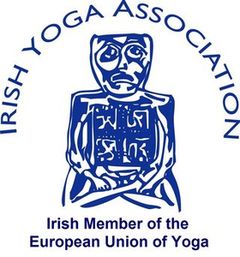IYA Aims >> IYA Objectives >> IYA Ethos >> IYA Code of Ethics >> What is Yoga? >> Yoga Forms >>

IYA Teachers Code of Ethics
Yamas
Ahimsa (non violence) – teachers will act in a peaceful way through understanding and self-discipline towards themselves and others in a manner which does no harm either verbally, mentally
or physically. They will respect all views irrespective of race, creed, political persuasion or sex. Teachers will use encouragement, love and compassion to foster learning and growth.
Satya (truthfulness) – teachers will act truthfully, harmoniously and sincerely with themselves and others. They should not diagnose a medical condition, prescribe or claim to cure. Where a
student’s condition gives rise for their concern, they should suggest consultation with an appropriate practitioner.
Asteya (non stealing) – teachers will give willingly what is possible in each situation and will not take from a situation either physically or psychologically. Recognising the responsibility
they have to their students, teachers will at all times respect the confidentiality of information regarding their students. They will teach to the very best of their ability with care and compassion giving priority to the welfare of the student.
Brahmacharya (non indulgence) –
teachers will be wise and balanced in their use of energy.
Aparigraha (non possessiveness) –
teachers will focus on what is needed by any given situation rather than on what may be desired, without seeking undue reward and in a spirit of co-operation.
Niyamas
Saucha (purity) – teachers will act with cleanliness of body and mind and strive not to judge or criticise themselves or others.
Santosa (contentment) – teachers will cultivate acceptance of where they and others are in their lives / practice of Yoga at any given moment in time so as to acknowledge the whole person in a
holistic way.
Tapas (self-discipline) – teachers will aim to make every effort to be aware of the reality of each situation and will aim to develop consciousness so as to progress in body, mind and spirit. Teachers should be fully insured against malpractice and public liability.
Svadyaya (self study) – teachers will practice awareness of their perception and motivation in all situations in an effort to maintain self-development. After completion of the IYA Teacher
Training Course they will continue their studies and keep themselves informed of contemporary developments in all aspects of Yoga on an on-going and regular basis.
Isvarapranidhana (devotion to God) – teachers will endeavour to realise the oneness of personal and universal existence.

